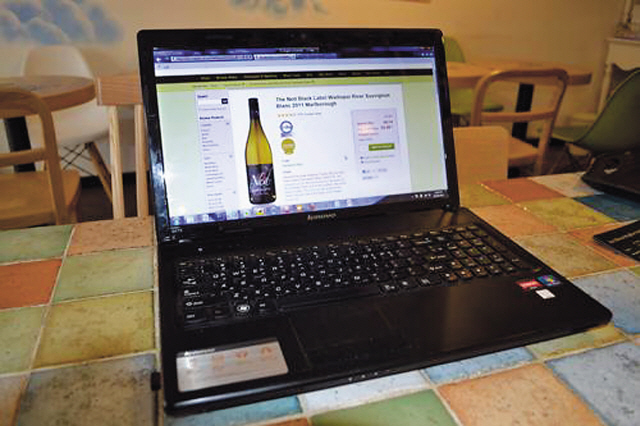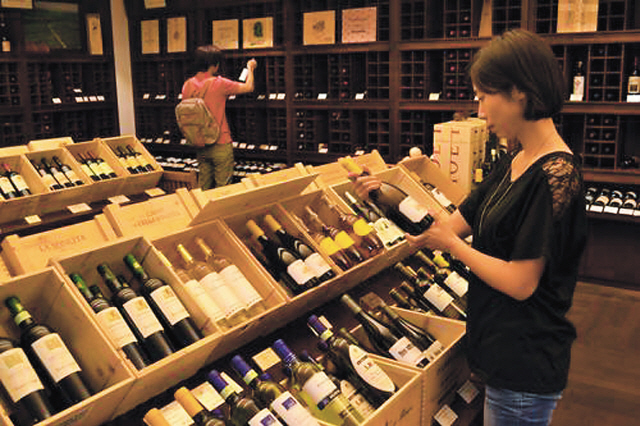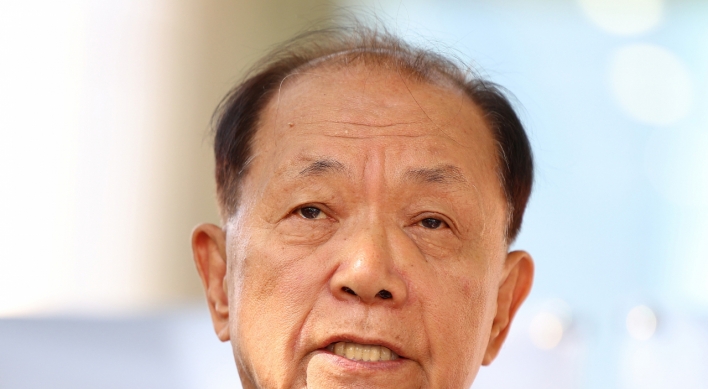Internet wine sales sow division in government, wine industry
By Korea HeraldPublished : July 19, 2012 - 20:24
Last month, the Fair Trade Commission appeared to have won over the National Tax Service. Just weeks later, both sides are back to the drawing board after months of wrangling ― over Internet wine sales.
The commission has been arguing for months in favor of allowing online wine sales, an initiative to counter consumer dissatisfaction over continued high wine prices even with the implementation of free trade agreements with Chile and the European Union. The commission says the Internet path will spur competition in the market and in turn lower wine prices.
The commission may have a point. South Korea’s online economy is the second largest in the world by share of gross domestic product. It accounted for 7.3 percent, or $75 billion, of the nation’s GDP in 2010, according to the Boston Consulting Group.
Many in the wine industry are not convinced prices can get lower. “Wine margins are at a historical low,” says Daniel Kangas, CFO of Asia Pacific Wines. They point out there is already plenty of competition with 150 importers actively distributing wine.
The commission has been arguing for months in favor of allowing online wine sales, an initiative to counter consumer dissatisfaction over continued high wine prices even with the implementation of free trade agreements with Chile and the European Union. The commission says the Internet path will spur competition in the market and in turn lower wine prices.
The commission may have a point. South Korea’s online economy is the second largest in the world by share of gross domestic product. It accounted for 7.3 percent, or $75 billion, of the nation’s GDP in 2010, according to the Boston Consulting Group.
Many in the wine industry are not convinced prices can get lower. “Wine margins are at a historical low,” says Daniel Kangas, CFO of Asia Pacific Wines. They point out there is already plenty of competition with 150 importers actively distributing wine.


Taxation authorities argue that allowing wine to be sold online would open a Pandora’s box, causing beer and whiskey producers to line up to sell their products online as well.
An NTS official who wished to remain anonymous said, “We can’t make an exception just for wine.”
Tax officials also worry that the Internet will easily become a conduit for unlicensed liquor traders to sell wine without paying due taxes and create a black market between sellers and entertainment establishments. Currently, wine shops and restaurants have to pay for wine with a special debit card issued by tax authorities that allows the government to monitor transactions.
Consumer groups are also opposed to the move. They believe Internet access to wines could create an underage drinking problem.
“Selling alcohol on the Internet is very dangerous for young people,” said Yoon Myoung, a policy director at Consumers Korea.
Heavy drinking among youth has been identified as a problem in Korea. In a survey of 4,061 university students by the Korean Alcohol Research Foundation in 2010, 71 percent said they drink more than five shots of soju in one sitting, which is defined as binge drinking by the World Health Organization. An official at the Ministry of Health and Welfare agreed with consumer groups that this is grounds for concern. “Selling wine via the Internet is not desirable,” he said, asking not to be named.
What these people don’t realize, online wine sale advocates say, is that some types of alcohol are already available over the Internet. Since June 2010, it has been possible to purchase traditional Korean wine and alcohol such as makgeolli directly from producers via their Web sites. Imported wine does not benefit from this advantage, and has to be sold through a complex distribution system.
As to encouraging underage and youth drinking, advocates highlight the relatively high price of wine compared to soju. A bottle of soju costs an average of 1,450 won ($1.20) at convenience stores, compared to a bottle of wine, which starts at 22,000 won.
The feared black market is ignorable, said Kang Soon-pil, CEO of the Gallery Wine. “There is no black market for wine. And the market is so small even if there is some fraud, the money involved with wine sales is tiny,” he added.
Not all wine importers, however, are embracing Internet sales.
Contributing to their resistance are extra costs for purchasing a website domain and hiring programmers to build the necessary systems for age verification and secure online transactions.
“I will have to hire another person to manage the website and deal with delivery to customers. All of this costs money and has to be included in margins.” said Jasmin Choi, CEO of Chikovino.
Also, wine isn’t a simple product to sell. It is sensitive to temperature and light and can be damaged as it moves through the distribution chain. Choi worries about this liability. “If I use a third party to sell my wines, who will take responsibility for damaged wine?” Choi asked.
Small independent retail wine shops, already in competition with department stores, may find it harder to compete when it comes to online sales. “I worry that it will benefit the big companies, especially Shinsegae and Lotte,” said Evan Kim, manager of wine shop Wine Square, which is considering establishing a website.
Shinsegae and Lotte import their own wine, and they both operate department stores and supermarkets across Korea.
Nonetheless, industry players believe the benefits outweigh the risks.
Vicky Jung, a wine blogger who runs the site Wineok.com, wants to utilize her database of wine labels.
“We see selling wine online as a great and obvious opportunity to grow the Korean wine market,” she said. “We are aware of wholesalers and some importers against it for their own reasons. However, we should recognize how beneficial it will be for consumers.”
Choi sees an added bonus of using the Internet to educate consumers. “I was initially opposed to the idea of Internet sales, but then I realized we can do education via the Internet. If they come to our website, they can learn how the wine is made and where it’s from.”
Simon Tam, a wine educator based in Hong Kong where online wine sales are allowed, agrees. “The Internet takes the fear factor away. It’s like carrying a book, but lighter,” he said.
Selling wine online is a global trend, industry experts argue.
“In general, online wine sales are expected to increase around the world in the next decade, so implementing policies now to help facilitate the process is a useful move,” says Liz Thach, a master of wine and professor of management and business at Sonoma State University.
The debate found no conclusion in the government, which on May 23 held an hours-long meeting at the presidential office Cheong Wa Dae, only to delay the decision.
“The president’s position is that he wants wine prices to be lowered.” said Lee Mi-yeon, Cheong Wa Dae spokeswoman for foreign press. “There was an argument that to facilitate lowering wine prices, selling wine via the Internet would make that possible,” she said.
The NTS, however, has refused to budge. “We have no plans to allow Internet sales,” said Jeong Byeong-ho, a consumer tax officer at the NTS. “There is no timeline. There has been no decision.”
In the meantime, importers and retailers are in limbo.
“It’s very confusing,” said Hong Eun-myung, CEO of Vino Vino.
“We don’t know what’s going to happen.” (Yonhap News)
-
Articles by Korea Herald






![[KH Explains] No more 'Michael' at Kakao Games](http://res.heraldm.com/phpwas/restmb_idxmake.php?idx=644&simg=/content/image/2024/04/28/20240428050183_0.jpg&u=20240428180321)











![[Herald Interview] Mistakes turn into blessings in street performance, director says](http://res.heraldm.com/phpwas/restmb_idxmake.php?idx=652&simg=/content/image/2024/04/28/20240428050150_0.jpg&u=20240428174656)
